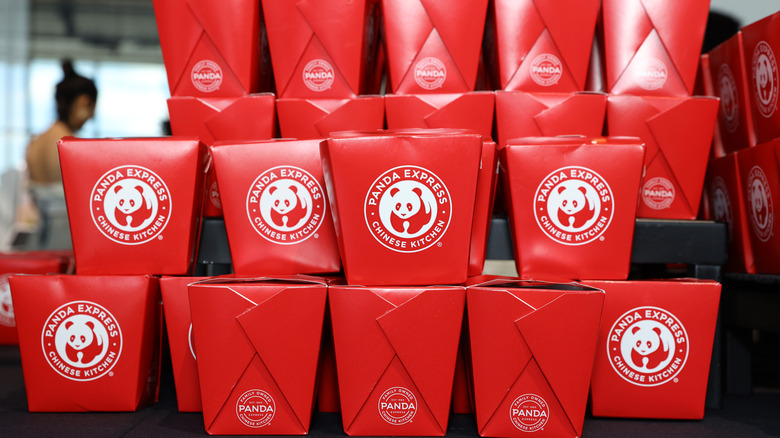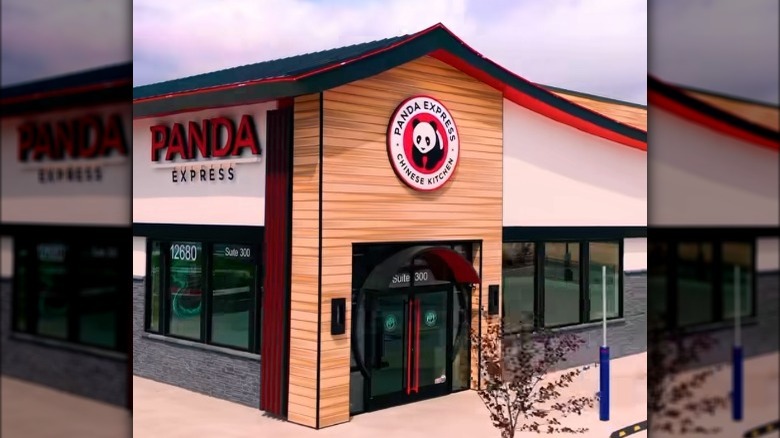Panda Express Is Honoring Its American Chinese Heritage With Restaurant Designs
From restaurants to mall food courts, sports stadiums, amusement parks, and more, Panda Express has made its mark on the food scene. Maybe you've even seen the "Absolutely not boarding my flight until I've had my airport orange chicken" meme, and we understand. Now, the elevated fast-casual chain is giving itself the ultimate 40th birthday gift: introducing Panda Home. Over the course of 40 years, Panda Express has emerged as an entity unto itself, blending American and Chinese culinary styles to bring traditional dishes to a wide audience of foodies. Now, the affectionately-named Panda Home restaurant is here to honor Panda Express's American Chinese heritage.
According to Chief Development Officer James Ku via QSR, in the same way, that Panda Express fuses cultural dishes together, Panda Home was designed with a fusion of architectural elements in mind. Both the inside and outside of the new restaurant are covered with art inspired by traditional Eastern symbols. The entrance is modeled after a moon gate, which represents peace, prosperity, and family. Inside, guests will find red paper lanterns, murals, and confetti tables. The exterior is decorated with a mural depicting a dragon dance and a curved roofline, a nod to the traditional Chinese xie shan style roof. At nighttime, Panda Home lights up with the colors of a Chinatown street market. The first prototypical Panda Home currently resides in Dripping Springs, Texas, with more locations on their way in 2023 and beyond.
Celebrating the past and welcoming the future
Texas is a melting pot of different cultures, heritages, and the culinary styles that come with them. Folks have been immigrating from Asia to Texas since at least the 1800s, but the state's Asian American and Pacific Islander population has seen a whopping 137% growth in just the past 20 years. Today, there are more than 30 Panda Express locations in Austin, Texas alone.
Panda Express started in 1973 as a sit-down Chinese restaurant, the Panda Inn, opened by Andrew Cherng and his father Chef Ming-Tsai Cherng. Among its accolades (including officially inventing orange chicken), Panda Express is one of the largest family-operated restaurants in the country — the chain is still run by Andrew and his wife Peggy.
The Cherngs are both immigrants (Andrew was born in Yangzhou, China and Peggy was born in Burma) and they continue to honor and celebrate historically marginalized communities with organizations like the $10 million Panda CommUnity Fund and $5 million in philanthropy to regional nonprofits in support of diverse representation. Even Panda Home itself is an homage to underrepresented communities, as the team commissioned its design from local artists. As Ku tells QSR, "Panda was built by immigrants, so we've always believed in the power of diversity and representation. Partnering with local artists throughout the country is our way of supporting and amplifying diverse voices."

